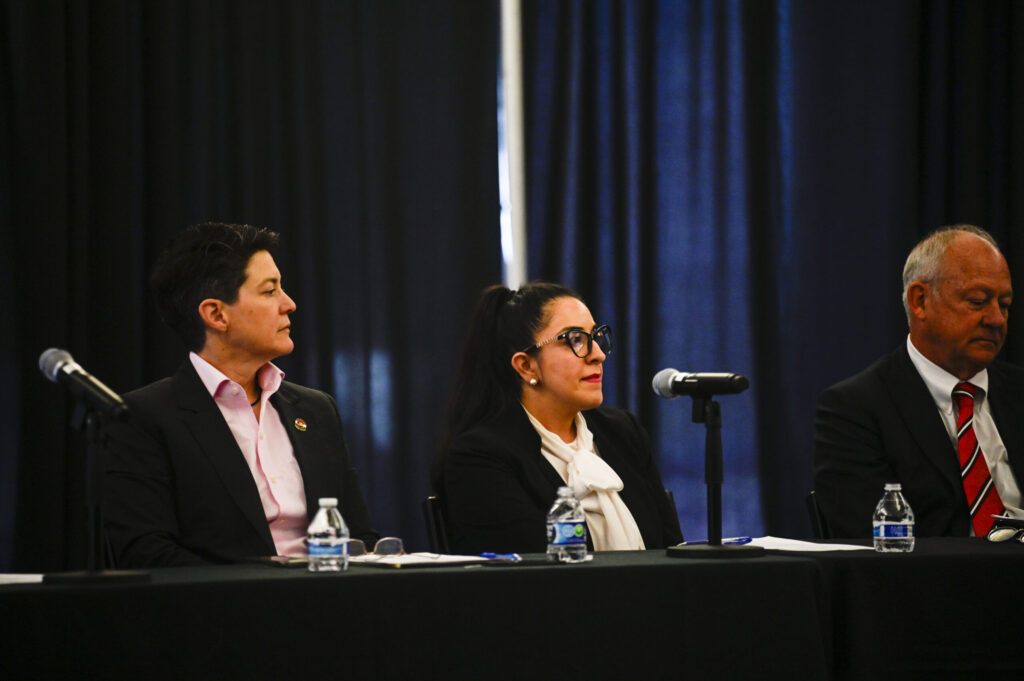Colorado appeals court divided on timeline for awarding restitution to crime victims

Nearly two years after the Colorado Supreme Court clarified that the typical method by which judges and prosecutors were awarding restitution to crime victims was incorrect, the state’s Court of Appeals is again divided over what the proper procedure looks like.
Last week, a three-judge appellate panel disagreed whether El Paso County District Court Judge Michael McHenry had the authority to order Darryl Cornelius Johnson to pay $11,000 to his employer, Walmart, after Johnson pleaded guilty to theft.
The dispute revolved around the deadline for restitution in state law. Unless financial compensation for the victim does not apply, prosecutors have until 91 days from sentencing to submit the dollar figure the defendant should pay. At the same time, trial judges also have 91 days from sentencing to order a specific amount. Either deadline can be extended, but there needs to be a reason.
In November 2021, the Supreme Court issued a decision in People v. Weeks announcing that, generally speaking, people were doing it wrong. Prosecutors tended to leave their restitution request open for 91 days, and a judge would order payment sometime afterward.
“The problem is that it doesn’t comport with the current restitution statute,” wrote Justice Carlos A. Samour Jr. at the time.
Prosecutors charged Johnson in early 2020 with stealing cash and electronics from the Walmart store where he worked. Walmart initially estimated Johnson took approximately $3,100 in property. By February 2020, the company revised its estimate to $11,000.
In June, McHenry accepted Johnson’s guilty plea and gave the prosecution 91 days to submit a restitution amount. On the ninety-first day, the district attorney’s office officially asked for $11,030. McHenry signed off on that amount the same day.
The defense objected to the restitution order and McHenry held a hearing in March 2021. At that point, he made his order final, well beyond the 91-day post-sentencing window. The judge explained his “standing policy” of letting defendants file objections amounted to “good cause” for a hearing beyond the 91 days.
Then the Supreme Court decided Weeks. Johnson argued in his appeal that there were two problematic deviations from the restitution process as the Supreme Court has envisioned it. First, although prosecutors do have 91 days to submit a restitution amount, the window is open “so long as that information isn’t available” at sentencing, the court specified. For Johnson, the prosecution knew Walmart was claiming $11,000 in losses months before his guilty plea.
Second, McHenry never explicitly mentioned why he had “good cause” to rule outside of his own 91-day deadline until after it had passed – a practice the Supreme Court also frowned upon.
“This is a problem that was happening consistently pre-Weeks that should no longer be happening this way,” public defender Mackenzie Shields told the Court of Appeals judges at oral argument.
Case: People v. Johnson
Decided: May 25, 2023
Jurisdiction: El Paso County
Ruling: 2-1
Judges: Rebecca R. Freyre (author)
Craig R. Welling (concurrence)
David Furman (dissent)
Background: State Supreme Court warns trial courts against exceeding restitution deadline
The appellate panel’s majority upheld the validity of McHenry’s $11,000 restitution order, but, in an unusual move, each judge wrote separately to lay out their reasoning.
Judge Rebecca R. Freyre wrote that the prosecution did not, in fact, know the exact amount of restitution by the time of Johnson’s sentencing because it was awaiting “final figures” from Walmart. Johnson’s plea agreement also gave the prosecution 91 days to “provide correct information,” which meant the parties apparently believed the final figures were unavailable at sentencing.
As for McHenry’s final order of restitution, which came several months after the deadline, Freyre agreed McHenry’s standard practice of letting defendants object was “good cause” for an extension.
Judge David Furman disagreed. In his view, the fact prosecutors knew in February 2020 that Walmart claimed $11,000 in losses meant they should have asked for that amount at the time of sentencing.
“I conclude that the prosecution had to provide this information to the court and that the prosecution did not fulfill its duty,” Furman wrote. He further argued the Supreme Court clearly intended for trial judges to list the good cause for exceeding their own deadline within the 91 days.
“While I agree with the majority that a defendant’s objection and request for a hearing on restitution can constitute good cause for extending the deadline,” wrote Furman, McHenry never made “the express finding of good cause.”
Joining the majority opinion was Judge Craig R. Welling. He sidestepped the question of when the prosecution knew it would be requesting $11,000 from Johnson, instead pointing out Johnson’s plea agreement allowed prosecutors the full 91 days to file their request.
“Because Johnson agreed to this term, he can’t now claim that the court erred by giving the prosecution ninety-one days,” Welling observed.
The case is People v. Johnson.














